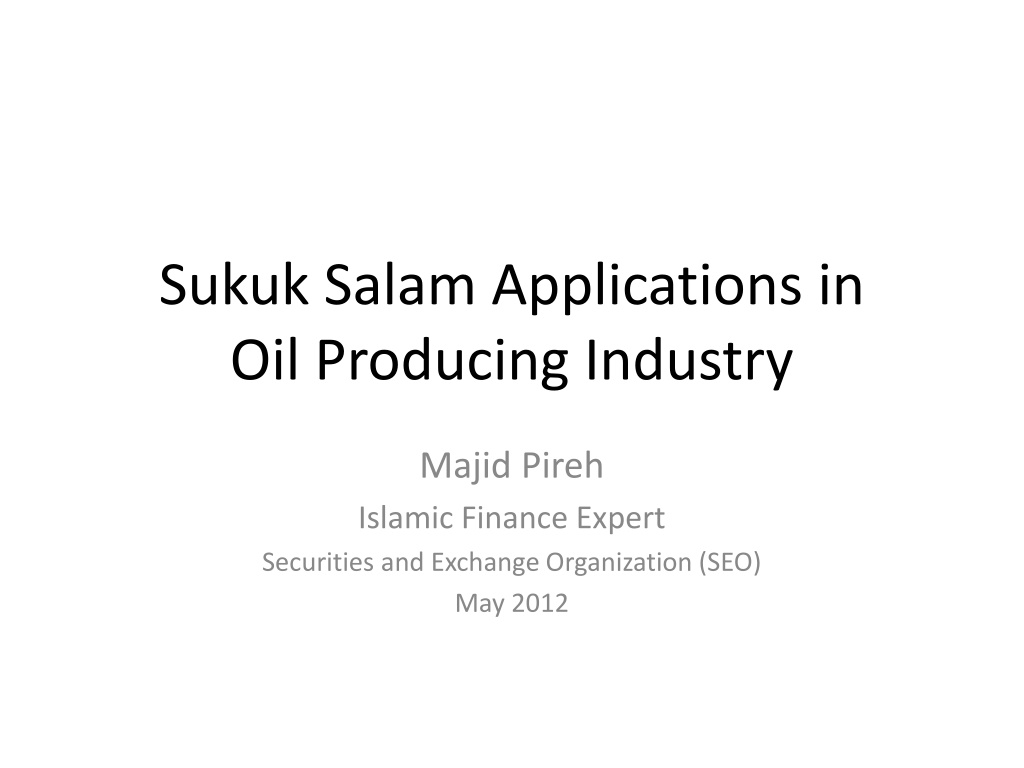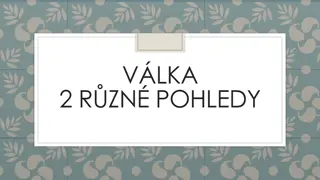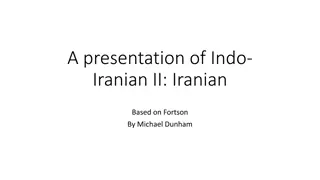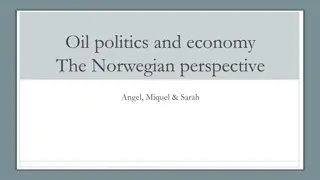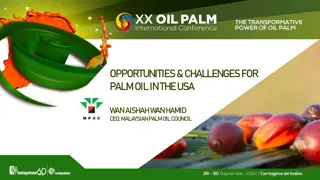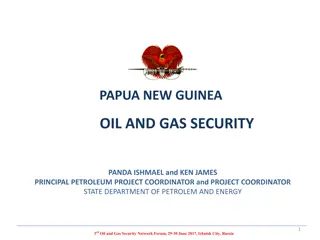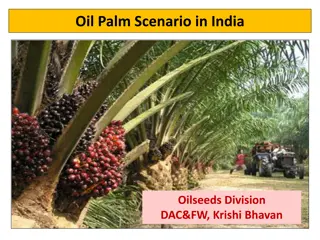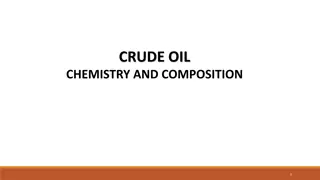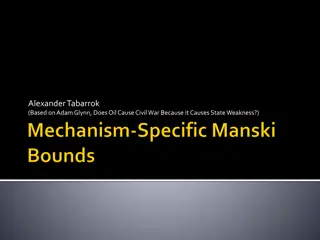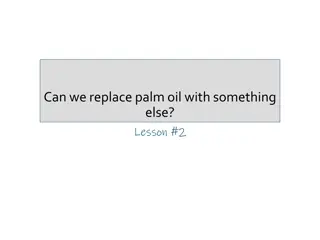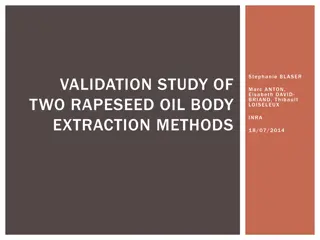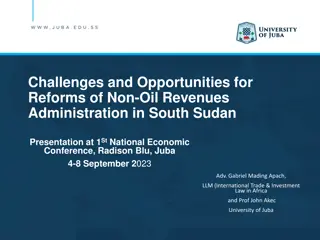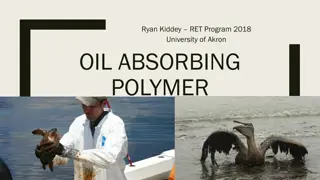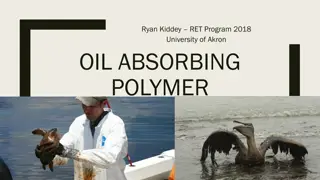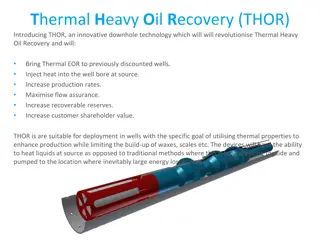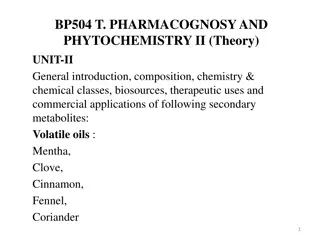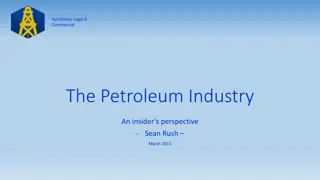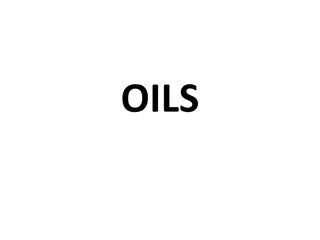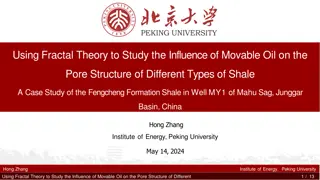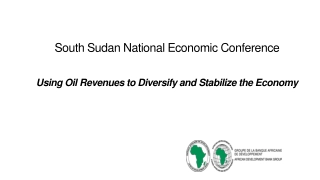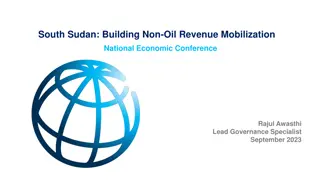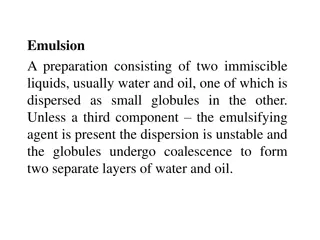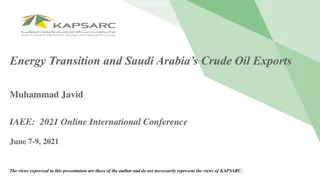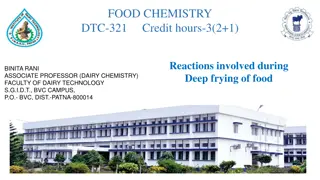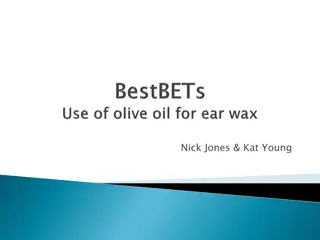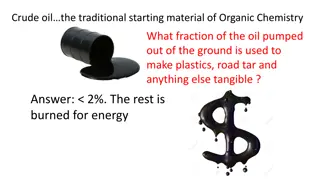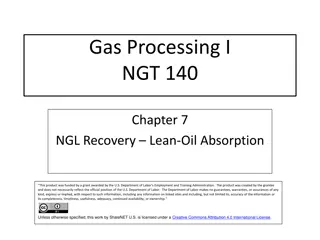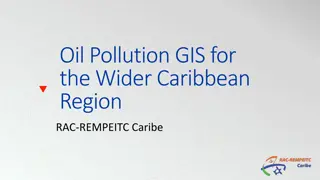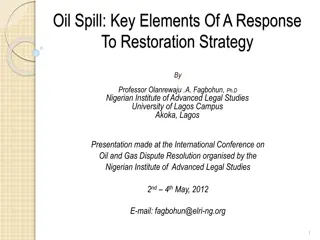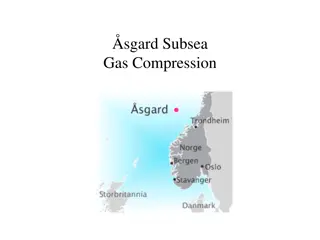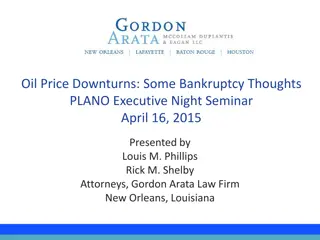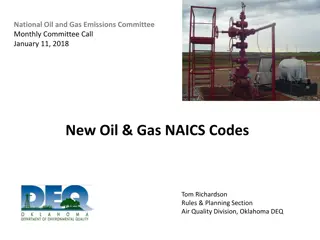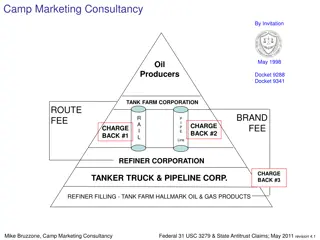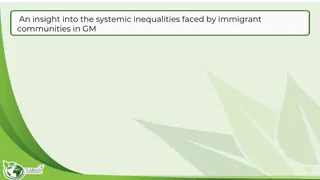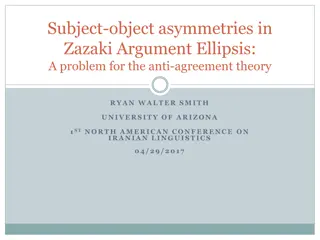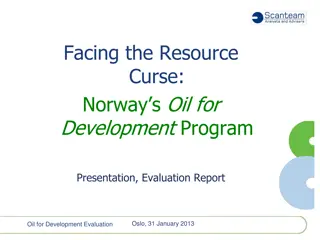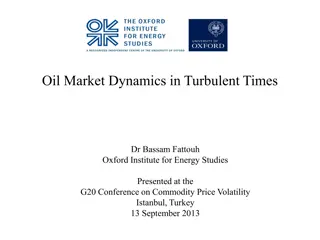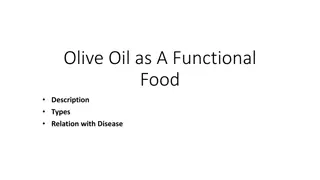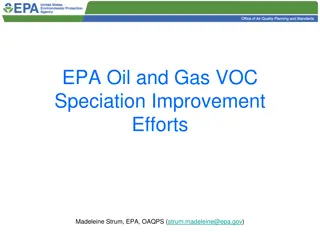Insights into the Iranian Oil Industry
The Iranian oil industry, with a rich history dating back a century, has been shaped by organizations like NIOC and directives from leaders such as Ayatollah Khamenei. This industry plays a pivotal role in global energy markets, with Iran being a significant oil producer and exporter. Initiatives like the National Development Fund aim to optimize oil revenues for sustainable development and industrial growth.
Download Presentation

Please find below an Image/Link to download the presentation.
The content on the website is provided AS IS for your information and personal use only. It may not be sold, licensed, or shared on other websites without obtaining consent from the author. Download presentation by click this link. If you encounter any issues during the download, it is possible that the publisher has removed the file from their server.
E N D
Presentation Transcript
Sukuk Salam Applications in Oil Producing Industry Majid Pireh Islamic Finance Expert Securities and Exchange Organization (SEO) May 2012
Oil Industry At A Glance Oil industry, for the time being, is the world s most essential and powerful industry whose ever sky-rising monetary circulation in the world s markets shocks every insider. Reaching oil resources has been the cause of many wars, coups, and massacres over a century. It has undoubtedly had a key role for superpowers in determining the world s political borders after the first and the second World Wars. World s nations are now of three types: oil-rich exporters, oil consumers and buyers, and oil-rich consumers.
Iranian oil industry at a glance Iranian oil industry began a hundred years ago, when oil was discovered in Masjed Soleiman for the first time, and it has survived and developed since then.
Iranian oil industry at a glance Since 1951, National Iranian Oil Company (NIOC) has been directing and making policies for exploration, drilling, production, research and development, refining, distribution and export of oil, gas, petroleum products. NIOC, with a vast amount of oil and gas resources, is one of the world s largest oil companies. Having 10% and 18% of the world's oil and gas reserves respectively, Iran was the OPEC's second largest oil producer in the Iranian year (ending late March 2008). The country also enjoys an outstanding status in meeting the world's energy demands with a production capacity of over 4 million barrels of crude oil per day.
Wednesday 3/14/2012 In a three hour visit to the Research Institute of the Petroleum Industry (RIPI), Supreme Leader of the Islamic Revolution, Ayatollah Seyyed Ali Khamenei stressed on necessity of changing the current view on oil industry as a source of revenue and providing income for annual budget. Supreme Leader described spending oil revenues for handling daily economic issues unwise adding oil revenues as a heritage and treasury should be a durable asset and a strong backing for the country. Supreme Leader called setting up the National Development Fund an important initiative adding under the five year development plan, at least 20 percent of the oil revenues should by deposited in the fund for promotion of production and bolstering industrial sector, a positive move that has been started and should be continued.
Friday 2/3/2012 South Pars Sukuk with 20 percent profit on sale Around $735 million in Sukuk will be issued as of February 4 at the Tejarat Bank s branches nationwide to finance the South Pars gas field s development projects, the National Iranian Oil Company (NIOC) managing director announced. The Sukuk will be offered with 20 percent annual profit for a period of four years to attract the public participation. According to Oil Minister Rostam Qasemi, Iran will also issue $15 billion in Sukuk in the current year to be invested in the domestic oil industry.
What is Sukuk Salam? Salam contract: Purchase of a commodity for deferred delivery in exchange for immediate payment according to specified conditions or sale of a commodity for deferred delivery in exchange for immediate payment. (www.aaoifi.com) In its simplest form, a salam contract involves the purchase of assets by one party from another party on immediate payment and deferred delivery terms. The purchase price of the assets is typically referred to as the salam capital and is paid at the time of entering into the salam contract. The assets sold under the salam contract are referred to as al-muslam fhi, delivery of which is deferred until a future date.
What is Sukuk Salam? (Con d) Salam sukuk are certificates of equal value issued for the purpose of mobilizing Salam capital so that the goods to be delivered on the basis of Salam come to the ownership of the certificate holders. The issuer of the certificates is a seller of the goods of Salam, the subscribers are the buyers of the goods, while the funds realized from subscription are the purchase price (Salam capital) of the goods. The holders of Salam certificates are the owners of the Salam goods and are entitled to the sale price of the certificates or the sale price of the Salam goods sold through a parallel Salam, if any.
Salam contract / Salam Sukuk All standard Shariah requirements that apply to Salam also apply to Salam Sukuk, such as, full payment by the buyer at the time of effecting the sale, standardized nature of underlying asset, clear enumeration of quantity, quality, date and place of delivery of the asset and the like.
Liquidity of the Market One of the Shariah conditions relating to Salam, as well as for creation of Sukuk Salam, is the requirement that the purchased goods are not re-sold before maturity. This constraint renders the Salam instrument illiquid and hence somewhat less attractive to investors. Thus, an investor will buy a Salam certificate if he expects prices of the underlying commodity to be higher on the maturity date.
Sukuk Salam Applications in Financing Oil Industry Salam Sukuk are certificates that shows Sukukholders are joint owners of specified barrels of oil which are purchased on the basis of Salam contract. The National Iranian Oil Company (NIOC) is the seller and will deliver the oil at maturity. The Sukuk are not tradable before maturity. The Salam capital should be paid in cash at the beginning.
Some scenarios at maturity At maturity, the oil price may be more/less than expected price. Is there any way to solve this matter? Option contact may be a solution!
Option contract The right, but not the obligation, to buy (for a call option) or sell (for a put option) a specific amount of a given commodity at a specified price (the strike price) during a specified period of time. Each option contract has a buyer, called the holder, and a seller, known as the writer. If the option contract is exercised, the writer is responsible for fulfilling the terms of the contract by delivering the shares to the appropriate party.
Option contract (Con d) In the case of a security that cannot be delivered such as an index, the contract is settled in cash. For the holder, the potential loss is limited to the price paid to acquire the option. When an option is not exercised, it expires.
Options contract from Shariah Board Viewpoint Option contract is a kind of commitment. In this contract, the option writer has the commitment to sell/buy the asset depending on what its buyer desires. According to the nature of the option contract, which is a new and independent contract, it can be a correct and permissible contract if all general provisions of the contracts are fully observed. Shariah-compatible option contract is structured only for those assts that could be really delivered. For this, some assets such as indexes or temperatures could not be considered as underlying assets for a Shariah-compatible option contract.
Options contract from Shariah Board Viewpoint Enacting of executive bylaws and guidelines should be carried out with a particular concern about preventing superficial and irregular transactions which causes such transactions be cancelled. Shariah Board of SEO also emphasized that value of options market should follow a rational ratio to real assets available in the real economy.
Some scenarios at maturity Suppose that the investors expect the oil price to be between 100 USD to 120 USD. If at maturity oil price is at that range, the investors shall receive the barrels of oil physically. How about some prices less/more than the expected range?
Some scenarios at maturity Use of options contract Sukukholders shall exercise their put option at 100 USD Less than 100 USD If the price is The National Iranian Oil Company shall exercise its call option at 120 USD Less than 120 USD
Trading Sukuk Salam As mentioned, Salam purchasers are not permitted to trade the commodity before maturity. Sukukholders may enter a separate Salam contract to sell some amount of commodity which is equal to what is purchased at the first Salam sale. The two contracts should be independent. This model is known as parallel Salam.
